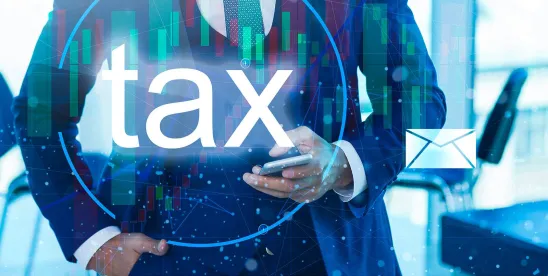On May 6, 2024, the U.S. Department of the Treasury (Treasury) and Internal Revenue Service (IRS) published final regulations (Final Regulations) regarding clean vehicle tax credits under Internal Revenue Code sections 25E and 30D established by the Inflation Reduction Act of 2022 (IRA). Among other important guidance, the Treasury regulations finalized its rules on Foreign Entity of Concern (FEOC) restrictions regarding the section 30D tax credit. On the same day, in conjunction with the Treasury final regulations, the U.S. Department of Energy (DOE) published a final interpretive rule (Notification of Final Interpretive Rule) finalizing its guidance for interpreting the statutory definition of FEOC under Section 40207 of the Infrastructure Investment and Jobs Act (IIJA). The Treasury final regulations and the DOE final interpretive rule largely adopted the proposed regulations and interpretive rule on FEOC published by the Treasury and the DOE on December 4, 2023, with some important changes and clarifications.
DOE Final Interpretative Rule on FEOC
The DOE’s final interpretive rule confirms the major elements of the December 2023 proposed interpretive rule and clarifies the definition of “foreign entity of concern” by providing interpretations of the following key terms: “government of a foreign country,” “foreign entity,” “subject to the jurisdiction,” and “owned by, controlled by, or subject to the direction.”
The final rule does not make any changes to its interpretations of “foreign entity” and “subject to the jurisdiction,” but makes clarifying changes to its interpretations of “government of a foreign country” and “owned by, controlled by, or subject to the direction.”
Government of a Foreign Country
The DOE’s final interpretive rule does not change the framework of the definition of “government of a foreign country,” which includes, among other elements, current or former senior political figures of a foreign country and their immediate family members. However, in the specific context of the PRC, DOE makes substantial changes and clarifies that the definition of “senior foreign political figure” now also includes current and former members of the National People’s Congress and Provincial Party Congresses, and current but not former members of local or provincial Chinese People’s Political Consultative Conferences.
Moreover, the final rule further clarifies and broadens when an official will be considered “senior” as follows: “an official should be or have been in a position of substantial authority over policy, operations, or the use of government-owned resources” (emphasis added).
Owned by, Controlled by, or Subject to the Direction
The DOE’s final interpretive rule is largely consistent with the proposed interpretive rule for the interpretations of “owned by, controlled by, or subject to the direction,” but makes some clarifying edits in response to public comments.
- Control by 25% Interest
The DOE’s final interpretive rule finalizes the 25% control test provided in the proposed interpretive rule and makes further clarifications to the method for calculating the control percentage. The 25% threshold is to apply to each metric (board seats, voting rights, and equity interests) independently, not in combination, and the highest metric is used for the FEOC analysis. For example, if an entity has 20% of its voting rights, 10% of its equity interests, and 15% of its board seats held by the government of a covered nation, the entity would be treated as being 20% controlled by the covered nation government (not combined 45% control).
- Effective Control by Licensing and Contracting
The DOE’s final interpretive rule finalizes that licensing agreements or other contracts can create a control relationship for FEOC test purposes and has proposed a safe harbor for evaluation of “effective control.” The final interpretive rule provides a list of rights covering five categories that need to be expressly reserved under the safe harbor rule. One requirement is that a non-FEOC needs to retain access to and use of any intellectual property, information, and data critical to production. In response to public comments, the final interpretive rule makes compromise regarding this requirement and provides that the non-FEOC entities need to retain such access and use no longer than “the duration of the contractual relationship.”
Moreover, in the final interpretive rule, the DOE declines to expand the definition of “control” to include foreign entities that receive significant government subsidies, grants, or debt financing from the government of a covered nation.
Treasury Final Regulations on FEOC Restrictions
The Treasury’s final regulations cross-reference the DOE’s FEOC interpretive guidance regarding FEOC definitions. Similar to the DOE’s final interpretive rule, the Treasury’s final regulations generally follow the December 2023 proposed regulations regarding FEOC restrictions and compliance regulations relating to the section 30D clean vehicle tax credit, but have also made certain important modifications and clarifications outlined below:
Allocation-based Accounting Rules
For the FEOC restrictions, the Treasury final regulations make permanent the allocation-based accounting rules for applicable critical minerals contained in battery cells and associated constituent materials.
Due Diligence
The final regulations confirm that to satisfy the due diligence requirement for FEOC compliance, and in addition to the due diligence conducted by the manufacturers meeting the qualification requirements of the regulations (qualified manufacturers) themselves, the qualified manufacturers can also reasonably rely on due diligence and attestations and certifications from suppliers if the qualified manufacturers do not know or have reason to know that such attestations or certifications are incorrect.
Impracticable-to-trace Battery Materials
The final regulations finalize a transition rule, which provides that the FEOC restrictions will not apply to qualified manufacturers as to “impracticable-to-trace battery materials” before 2027. The term “impracticable-to-trace battery materials” replaces the proposed regulations’ reference to “non-traceable battery materials.” Impracticable-to-trace battery materials are defined in the final regulations as specifically identified low-value battery materials that originate from multiple sources and are commingled by suppliers during production processes to a degree that the qualified manufacturers cannot determine the origin of such materials. The final regulations also identify certain battery materials as constituting impracticable-to-trace battery materials. Qualified manufacturers may temporarily exclude impracticable-to-trace battery materials from the required FEOC due diligence and FEOC compliance determinations until January 1, 2027. To take advantage of this transition rule, qualified manufacturers must submit a report during the upfront review process as set forth in the final regulations, demonstrating how they will comply with the FEOC restrictions once the transition rule is no longer in effect.
Traced Qualifying Value Test
The final regulations provide a new test, the “traced qualifying value test,” for OEMs to trace the sourcing of critical minerals and determine the actual value-added percentage for each applicable qualifying critical mineral for each procurement chain.
Exemption for New Qualified Fuel Cell Motor Vehicles
The final regulations also confirm that the FEOC restrictions generally do not apply to new qualified fuel cell motor vehicles (with certain exception) as they do not contain clean vehicle batteries.
Conclusion
Under the final regulations and final interpretive rule, to take advantage of the section 30D tax credit, qualified manufacturers shall conduct FEOC and supply chain analysis and satisfy the due diligence, certification and other requirements. Moreover, for the qualified manufacturers that seek to rely on their battery suppliers’ due diligence and relevant attestations or certifications, they should consider incorporating terms in their contracts with such suppliers that require reporting and tracing assurances regarding battery materials and critical minerals.
The DOE’s final interpretive rule became effective on May 6, 2024. The Treasury’s final regulations will be effective on July 5, 2024.





 />i
/>i

